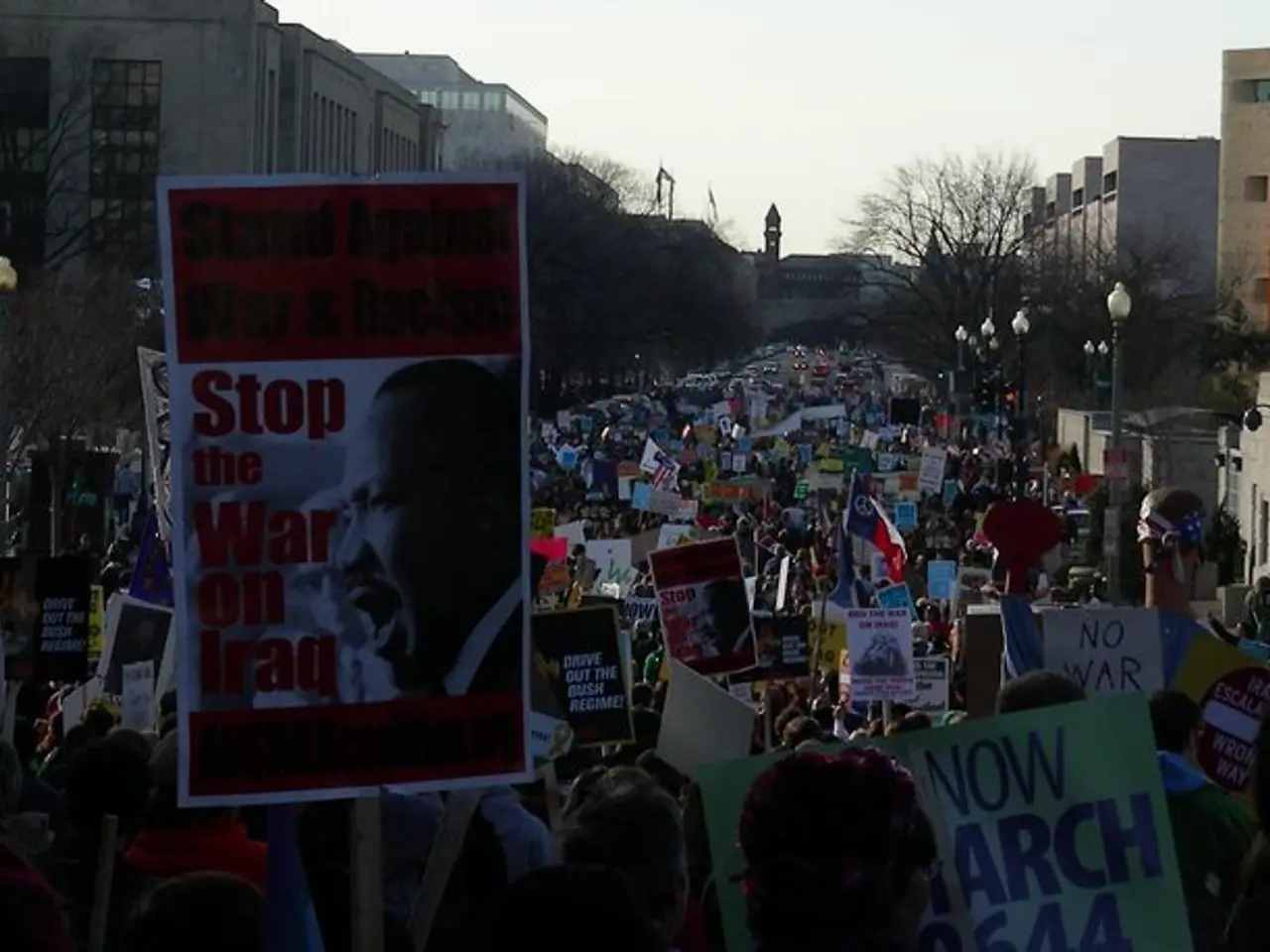"Assessing the Progression: Belarus Five Years After the Protests"
Five years ago, the largest protests in Belarus' history shook the country, marking a critical turning point in its political landscape. The catalyst was the August 9, 2020, presidential election, which was widely perceived as rigged in favour of Alexander Lukashenko, who had been in power for over a quarter of a century.
The Lukashenka government responded with brutal violence, mass arrests, systemic human rights abuses, and criminalization of dissent. This wave of repression led to over 1,300 political prisoners and widespread intimidation of civil society and independent media, resulting in more than 60,000 people being imprisoned in Belarus.
Notably, figures such as Maria Kolesnikova, a musician-turned-activist, and Sviatlana Tsikhanouskaya, a then-housewife who entered the presidential race in place of her imprisoned husband Siarhei Tsikhanouski, were forced into exile. Today, Sviatlana Tsikhanouskaya continues to lead the opposition from Lithuania, calling for free and fair elections and outside support.
The protests involved various groups, including women, students, workers, actors, athletes, diplomats, doctors, teachers, and more. The digital traces of these mass protests have vanished, with media outlets closed or operating from abroad, their websites blocked by the Belarusian authorities.
Since 2020, over 500,000 Belarusians have fled the country, creating a significant diaspora of activists and weakening domestic opposition. Those remaining live under a securitized, authoritarian system marked by surveillance and repression.
Despite the protests, Lukashenka remains in power, largely because he secured elite, police, and security forces’ loyalty, as well as Russia’s political and military backing. However, his regime is now deeply isolated domestically and internationally, widely regarded as illegitimate, and overseeing political, economic, and social regression.
The crisis pushed Belarus closer to Russia, with Lukashenka solidifying his role as a Kremlin ally, supporting Putin’s invasion of Ukraine by allowing military use of Belarusian territory. Relations with the West, including the U.S. and EU, have deteriorated sharply, with sanctions and diplomatic isolation measures ongoing.
However, the opposition persists, and the regime's intensifying crackdown has extended into everyday life and online activity, illustrating novel authoritarian strategies. Over the years, Lukashenko has worked to secure Russia's support and has helped Russian President Vladimir Putin in the war against Ukraine.
Recently, Lukashenko has stated that he is prepared to release several thousand political prisoners in exchange for concessions from the West. Western countries, such as those suggested by Artyom Shraibman, could potentially lift some sanctions to reach an exchange with Lukashenko to end the migration crisis and release political prisoners. Since June 2022, more than 300 political prisoners have been released from custody in small groups.
Despite the ongoing repression, the resilience of civil society movements in Belarus serves as a testament to their enduring spirit. Figures like Ales Bialiatski, a human rights activist and a Nobel Prize laureate, continue to work tirelessly in penal colonies within Belarus.
In conclusion, five years on, the 2020 protests represent a critical turning point. They triggered a deep political crisis resulting in harsher autocracy and international isolation, but they also catalysed a more organized and enduring opposition movement, though currently exiled and suppressed domestically. Belarus remains in a state of political limbo with an uncertain future.
- The political landscape of Belarus was significantly altered five years ago, with massive protests arising against Alexander Lukashenko's rule.
- The police and security forces, as well as elite members, remain loyal to Lukashenko, helping him maintain power despite widespread international scrutiny and sanctions.
- The Lukashenka regime has been marked by human rights abuses, criminalization of dissent, and widespread violence since the 2020 protests.
- Over 500,000 Belarusians have migrated from the country since 2020, forming a large diaspora of activists and weakening domestic opposition.
- Western nations, such as those suggested by Artyom Shraibman, could potentially lift some sanctions to secure the release of political prisoners and find a resolution to the ongoing migration crisis in Belarus.
- The resilience of civil society movements in Belarus is evident, as evidenced by the continued work of figures like Ales Bialiatski, a human rights activist and Nobel Prize laureate, despite facing persecution in penal colonies within the country.








